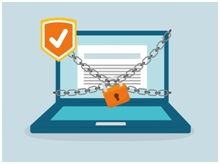
Unsurprisingly, laws and regulations are rapidly being put in place to reduce risks and protect our digital privacy. Organisations can now keep on top of these requirements and protect themselves at the same time, with the world’s first International Standard to help organisations manage privacy information and meet regulatory requirements.
Protecting our digital privacy is a significant business concern. According to IBM, the average cost of a data breach is USD 3.6 million, and legal obligations are increasingly stringent. As we get more connected, governments all over the world are introducing various privacy regulations, such as the European Union’s General Data Protection Regulation (GDPR), which organisations must adhere to. The new ISO standards will help businesses meet such requirements, whatever jurisdiction they work in.
The newly published ISO/IEC 27701, Security techniques — Extension to ISO/IEC 27001 and ISO/IEC 27002 for privacy information management — Requirements and guidelines, specifies the requirements for establishing, implementing, maintaining and continually improving a privacy-specific information security operations from the time an emergency call is placed until after an incident is resolved.
ISO/IEC 27701 was developed by working group 5 of ISO technical committee ISO/IEC JTC1/SC 27, Information security, cybersecurity and privacy protection, which is made up of experts from all over the world from data protection authorities, security agencies, academia and industry.
Matthieu Grall of the Commission Nationale de l’Informatique et des Libertés, the French independent watchdog for the protection of personal data, was an active participant of SC 27 and a contributor to the development of the standard. With increasingly stringent data protection requirements and laws, he said there is a real need for this standard. “Despite the risks of not complying to these regulations, we know that many organisations are simply not ready and need guidance. With the number of complaints and fines related to privacy and data protection on the rise, the need for this standard is now obvious. Moreover, organisations need to bring trust to their authorities, partners, customers and employers. Such a standard will contribute strongly to this trust.”











